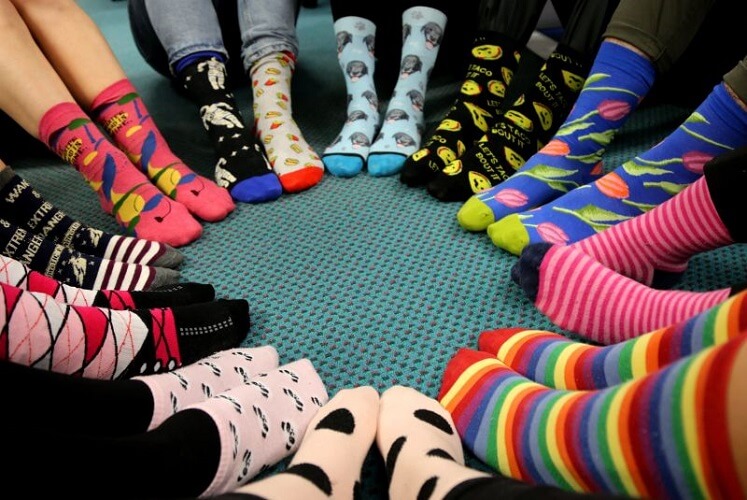In the vast world of commerce and business lexicon, few terms are as frequently used – and often confused – as “Sale” and “Sell”. Both vital cogs in the intricate machinery of trade, these terms play a pivotal role, not only in day-to-day interactions but also in shaping our understanding of the marketplace.
At first glance, Sale and Sell might seem interchangeable to the untrained eye. After all, both terms orbit the sphere of transactions and exchanges. Yet, their specific nuances, when overlooked, can lead to significant misunderstandings, particularly in business contexts where every word counts. Whether it’s a budding entrepreneur drafting their first business pitch or a seasoned marketer crafting an advertisement, distinguishing between these terms is crucial.
Beyond just semantics, understanding “Sale” versus “Sell” can have tangible implications for businesses. Misusing these terms might not only result in confused clientele but could also potentially impact a company’s bottom line.
With the stakes so high, it becomes paramount to shed light on this prevalent confusion. In this article, we aim to delve deep into the intricacies of Sale and Sell, discerning their differences and guiding readers towards their correct and effective usage.

Ever Mixed Up ‘Sale’ and ‘Sell’? You’re Not Alone!
Imagine this – you’re sitting at your favorite cafe, sipping on that just-perfect cappuccino. You overhear a young entrepreneur at the next table excitedly telling a friend, “I can’t believe the sell we had today!“. You almost spit out your coffee. Did he just say sell instead of sale? You wouldn’t be the only one to mix those up. But why is this mix-up so common?
- Real-World Blunders:
- The Startup Stumble: Remember that startup that sent out an email blast to thousands, boasting about their “biggest sell of the year”? Turned into quite the Twitter joke. Mistakes like these aren’t just grammar blunders; they can make brands look unprofessional.
- The Billboard Oops: A billboard along the freeway, paid for in thousands, read: “Our biggest sell event this season!” Imagine the facepalm moments.
Now, why does this confusion persist? Let’s break it down, cafe-style:
- When To Use “Sell”:
- Think action. It’s about doing. Selling your old bike, selling an idea, or just the act of selling.
- Example: “I need to sell my car before the end of this month.”
- When To Use “Sale”:
- It’s an event or a noun. Those shoes on sale, that garage sale next door, or the sale of your old comic book collection.
- Example: “The sale of vintage watches skyrocketed last Christmas.”
Table: Sale vs. Sell – At a Glance
| Term | Definition | Vivid Example |
|---|---|---|
| Sell | The act of transferring goods or services in exchange for money. | “She managed to sell the painting at a staggering price!” |
| Sale | The event or instance of selling, or an offer at a reduced price. | “The Black Friday sale had customers queuing up from dawn.” |
Ever thought about why this matters, especially now? With the surge in online businesses post-pandemic, clarity in communication is gold. Ever clicked on a misleading ad? Frustrating, right? For businesses, such slip-ups can be costly. For the rest of us, they can be downright confusing!
So, what can you do about it?
- Stay Informed: Knowledge is power. And in this digital age, clear communication can set you miles apart.
- Double-Check: Before you post, tweet, or send – review!
- Ask Around: Not sure? A quick chat with a colleague or friend can save a lot of face.
Have you ever made a “Sale” vs. “Sell” error? Or spotted one that made you chuckle? Let us know in the comments below! And remember, we all trip up sometimes. It’s catching ourselves that counts!
Beyond Grammar: The Business Impact of ‘Sale’ vs. ‘Sell’
Picture this: you’re lounging on a sunny beach, icy mojito in hand, and your smartphone buzzes with a notification. It’s from your favorite shoe brand, advertising their “mega sell event” next weekend. Do they mean a sales event or are they doing some massive selling spree? Now, this isn’t just a grammar enthusiast’s nitpick. This is business – and words can translate to dollars.
- Tales from the Trade:
- The Investment Slip: A friend once shared a story about a young entrepreneur seeking investors. The slide deck? “Projected Sells for the next quarter.” Investors raised eyebrows, not checks.
- The Emailer’s Regret: An online tech store announced, “Flash Sell on all gadgets!” The result? An inbox flooded with queries about the store’s future rather than product inquiries.
Navigating the business world, one realizes it’s not just about what we say but how accurately we say it. Dive in with me:
- The Nuances of “Sell”:
- Think process. The effort that goes into making a deal, persuading someone, or the hustle in a bustling market.
- Example: “The sales team managed to sell 100 units in just two hours!”
- The Subtleties of “Sale”:
- It’s an outcome or a period. The result of that hustle, the event you advertise, or the transaction that ensues.
- Example: “Thanks to the holiday season, the sale of handcrafted gifts went through the roof!”
Table: Business Implications – ‘Sale’ vs. ‘Sell’
| Term | Business Context | Real-World Scenario |
|---|---|---|
| Sell | Refers to the act of persuading or the transaction process. | “Our aim this year is to sell in five new countries.” |
| Sale | Denotes the event, offer, or the outcome of the selling process. | “The end-of-year sale generated record-breaking revenue.” |
In today’s fast-paced, digitally connected world, especially post the e-commerce boom, precision is crucial. Miscommunication isn’t just about a few raised eyebrows; it’s about trust, brand image, and, yes, the bottom line.
Your takeaway?
- Words Matter: Especially in business, where ambiguity can lead to losses or mistrust.
- Stay Updated: Dive into resources, attend webinars, or simply have coffee chats about industry jargon.
- Seek Feedback: Before that big presentation or campaign launch, a second pair of eyes can be a game-changer.
Ever faced a business hiccup due to such mix-ups? Or maybe you’ve seen brands turn them into humorous comebacks? Share your story below! Because, at the end of the day, we’re all in this learning journey together, right?
The Ripple Effect: How ‘Sale’ and ‘Sell’ Influence Consumer Behavior
Imagine strolling through a quaint European town, the kind with cobblestone streets and ivy-covered walls. You stumble upon a charming little boutique with a sign that reads, “Exclusive Sell Today!” Would you be intrigued or momentarily puzzled? In the vast ocean of consumer behavior, these tiny linguistic waves can create unexpected ripples.
- Stories from the Shop Floor:
- The Social Media Mix-up: A trendy cafe used the hashtag “#MorningCoffeeSell” for their discount mornings. Patrons wondered: were they selling the cafe?
- The Local Newspaper Nudge: A theater advertised their “Weekend Sell on Tickets!” Surprisingly, it drew attention – but for its gaffe, not the offer.
So, why do these words, seemingly simple, hold so much sway over consumers? Let’s peel back the layers:
- The Power of “Sell”:
- It’s about the journey. The strategy, the pitch, and the art of persuasion.
- Example: “The artist could sell ice to Eskimos with his charisma!”
- The Magic of “Sale”:
- It’s the destination. The deals, the events, and the moments consumers eagerly await.
- Example: “I couldn’t resist the summer sale; those discounts were too tempting!”
Table: Consumer Perceptions – ‘Sale’ vs. ‘Sell’
| Term | Consumer Viewpoint | Everyday Observations |
|---|---|---|
| Sell | Often seen as the behind-the-scenes process or strategy. | “The way they sell their brand story is captivating.” |
| Sale | Viewed as a direct benefit or opportunity for the consumer. | “I wait all year for their Black Friday sale!” |
In the age of influencers, viral marketing, and instant feedback, precision isn’t just recommended; it’s essential. Missteps can quickly spiral into viral memes, while accuracy can build bridges of trust and loyalty.
What’s the lesson here?
- Details, Details, Details: In the world of consumer relationships, the devil truly is in the details.
- Engage & Listen: Active social media engagement can offer insights and even offer chances to turn slips into wins.
- Adapt & Evolve: Mistakes happen; it’s how brands pivot that makes the difference.
Ever been wooed by a particularly catchy sale or an impressive sell? Or maybe you’ve got a funny signage error up your sleeve? Dive into the comments and spill the beans! Remember, every little story adds a hue to the vast canvas of consumer experiences.
Conclusion
As we wrap up our enlightening jaunt through the maze of “Sale” versus “Sell”, let’s park ourselves on a cozy couch, perhaps with a cup of steaming chai, and mull over what we’ve discovered. These two little words, so frequently intertwined in our daily lingo, carry more weight than one might think, right?
The road of language is paved with nuances. Think of all those times you chuckled at a misspelled sign or raised an eyebrow at an email faux pas. While it’s easy to brush these off in everyday conversation, in the world of commerce and brand image, they play a significant role. Just like the difference between a poorly brewed coffee and your favorite artisanal latte – the details matter.
Why should we care, though?
- Reputation: In an age where tweets fly fast and memes go viral in a heartbeat, brand reputation hinges on precision.
- Communication: Clear, accurate communication fosters trust and builds stronger consumer relationships.
- Impact: Beyond the chuckles and facepalms, these linguistic nuances influence buying decisions and brand perceptions.
Now, having navigated the intricacies of “Sale” and “Sell”, here’s a challenge: Next time you spot one of these terms in the wild – be it on a billboard, in an advertisement, or during a cafe conversation – take a moment. Reflect on its usage. Is it accurate? Does it resonate?
And as we part ways, ponder this: in the vibrant tapestry of language, how often do we overlook the subtle shades? Yet, as we’ve seen, these shades can paint powerful stories. So, dear reader, the next time you pen an email, craft a pitch, or chat about the weekend sales, remember the tales of “Sale” and “Sell”. And perhaps, share this newfound wisdom with a friend over your next coffee catch-up?
Until next time, keep exploring the delightful detours of language. And who knows? Maybe we’ll bump into each other at the next big “Sale”!







